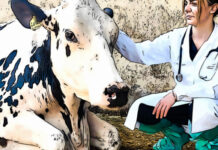The impromptu reform of Italian regulations to guard food safety-which occurred with Legislative Decree. 27/21, which was immediately amended by DL 42/21 (1,2)-generated confusion on how sampling and analysis should be followed in official public controls. As well as on the measures to be taken, in cases of analytical results that do not meet the requirements the exceeding of the limit set in the regulations. Regions meanwhile offer a vademecum.
Methods of sampling and analysis, vademecum of the regions
The Health Commission of the State-Regions and Autonomous Provinces Conference has exposed the Ministries of Health and Justice and MiPAAF to the urgency of agreeing on the modus operandi, in light of the reforms, to ensure the continuity of official controls and actions that are found to be necessary, in line with European and national standards.
In turn, the Interregional Coordination Prevention and Public Health Area has proposed to the Ministry of Health the sampling methods to be followed in official controls. With particular regard to the ‘sampling, analysis, diagnosis and testing‘ activities referred to in Reg. EU 2017/625, Article 14.1.h. (3) Pending requested clarification from the Ministry of Health, the vademecum of the Regions to follow.
Methods of sampling and analysis. The single-rate hypothesis
The methods of sampling and analysis-as part of official controls for the verification of food safety-continue to follow the rules defined at the time in Presidential Decree 327/1980. With the aim of ensuring the exercise of the right of defense recalled in Reg. EU 2017/625 (Art. 35) and in Leg. 27/2021 (Articles 7,8).
A single sample aliquot for analysis may, however, be taken when the competent authority:
– cannot ensure the reproducibility of the analytical outcome, given prevalence and distribution of the hazard in the matrices, perishability of the samples or matrices (e.g., microbiological analysis aimed at verifying food safety criteria),
– specifies, in the sampling report, the relevant reasons that exclude the advisability, relevance or technical feasibility for the repetition of the analysis or test (Leg. 27/2021, Art. 7.2, first sentence).
Single tax rate and right of defense
The guarantee of defense in criminal cases entails the application by supervisory authorities of the implementing, coordinating and transitional rules of the Code of Criminal Procedure (Legislative Decree 271/1989, Article 223.1).
‘If, in the course of inspection or supervisory activities provided for by laws or decrees, analyses of samples are to be carried out for which review is not required, notice shall be given, even orally, by the proceeding body to the person concerned of the day, time and place where the analyses will be carried out. The data subject or a specially designated person of his or her choice may be present at the analysis, possibly with the assistance of a technical adviser. Such persons are vested with the powers provided for in Article 230 of the Code [of Criminal Procedure, ed.]‘
Sampling in 4 or 5 aliquots
Instead, the competent authority performs 4- or 5- aliquot sampling if the analyses involve the detection of hazards in matrices where reproducibility of the analytical result is assured and legal limits are present. In such cases, the rates are divided as follows:
– Rate for analysis at the official laboratory,
– rate for the operator at which the sample was taken (if different from the producer), for the purpose of analytical counter-expertise,
– rate for the producer (FBO), in the case of pre-packaged food (analytical counter-expertise),
– aliquot for review analysis at ISS, subject to the convening of the interested party (at a possible later stage of the proceedings),
– aliquot available for any expertise ordered by the judicial authority at the first laboratory.
Monitoring
On the other hand, sampling performed during monitoring activities-for verification of process hygiene criteria (i.e., in the absence of legal thresholds, e.g., acrylamide)-are subject to the single-rate levy. (4)
In relation to these controls, the provisions of Leg. 271/1989, Article 233.1 (since the applicability of Law 283/62, Article 5, is not configured a priori, although it cannot be excluded).
Evaluation and communication of the analytical outcome
In all cases-and regardless of the sampling method adopted-the evaluation of the analytical result to ascertain noncompliance is the responsibility of the competent health authority. Which must communicate the outcome to the parties concerned, in a timely manner.
In the event of a finding of noncompliance, operators may request documentary counter-expertise or documentary review of the initial analysis, test or diagnosis. (5) Where operators have requested the review of analysis, the competent authority must wait for the response of the ISS (Istituto Superiore di Sanità) before proceeding with any allegation of wrongdoing.
Fabrizio De Stefani and Dario Dongo
Notes
(1) Dario Dongo. Legislative Decree. 27/21 and repeal of Law 283/1962, question of constitutionality. GIFT (Great Italian Food Trade). 17.3.21, https://www.greatitalianfoodtrade.it/sicurezza/d-lgs-27-21-e-abrogazione-della-legge-283-1962-questione-di-legittimità-costituzionale
(2) Dario Dongo. Food crimes, Draghi government saves Law 283/1962. #CleanSpades. GIFT (Great Italian Food Trade). 3/20/21, https://www.greatitalianfoodtrade.it/sicurezza/reati-alimentari-il-governo-draghi-salva-la-legge-283-1962-vanghepulite
(3) Dario Dongo, Giulia Torre. Official public controls, EU Regulation 2017/625 kicks off. GIFT (Great Italian Food Trade). 12/18/19, https://www.greatitalianfoodtrade.it/sicurezza/controlli-pubblici-ufficiali-al-via-il-regolamento-ue-2017-625
(4) Dario Dongo, Ylenia Desireè Patti Giammello. Acrylamide in baked goods in Italy, study. GIFT (Great Italian Food Trade). 25.11.20, https://www.greatitalianfoodtrade.it/sicurezza/acrilammide-nei-prodotti-da-forno-in-italia-studio
(5) Reg. EU 2017/625, Article 35(1) and (3). Legislative Decree. 27/2021, Articles 7.5 and 8









